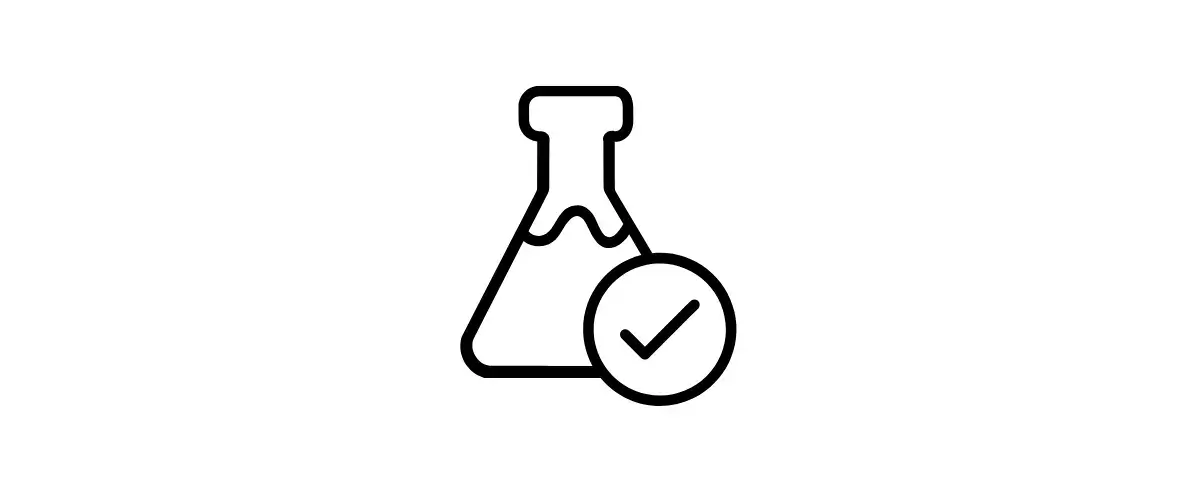
Toxicology is a branch of science that takes a highly biological approach to chemistry… or perhaps a highly chemical approach to biology. A successful toxicology lab uses the principles of both chemistry and biology to study chemical safety and the impact of various substances on the body.
What Is Toxicology?
Toxicology is an important field of medical biochemistry that is used primarily to detect alcohol, drugs, and toxic chemicals. Toxicology is important to the medical field, criminal justice field, pharmaceutical field, and other fields that deal with human biochemistry.
It is also an important research area. Here, we will explore the different elements of toxicology laboratories and see what makes them unique.
What Does Toxicology Study?
Toxicology is defined as the study of the effects of natural and man-made poisons on the human body. Practically, toxicologists study the effects of pharmaceuticals, narcotics, carcinogens, and anything else that may have an adverse effect on the body.
What Happens in a Toxicology Lab?
Generally, one of two things happens in a toxicology laboratory: research or testing. A research toxicology lab will be associated with an industry or university and will research the impact of various chemicals on biological organisms.
The goal of research toxicology is to better understand the impacts that various chemicals can have on our health and wellbeing. These labs run experiments, develop tests and antidotes, and perform studies with model organisms.
Clinical toxicology labs run tests on biological samples. Usually these are human samples and are taken from hair, blood, skin, urine, saliva, or stomach contents.
These tests are typically referred to as toxicology panels and can identify a number of substances from these samples. These panels are a series of standard tests that can detect illicit substances as well as toxins from unintentional poisoning or exposure.
Toxicology Tests
There are two main types of toxicology tests performed at clinical laboratories: presumptive screening and definitive confirmation. Presumptive screening is done when the particular substance being checked for is uncertain.
These tests are qualitative in nature; they can tell you if there is substance present, but not how much of it there is.
Definitive confirmation tests are typically ordered when a person is suspected of being exposed to a particular substance. Definitive tests are quantitative tests, meaning they will tell you exactly how much of a particular substance was in a sample.
Where Do You Find Toxicology Labs?
Because of toxicology’s dealing with illicit substances and use in criminal investigations, these labs can be found in places you might not expect a science lab. Police departments and state law enforcement often maintain toxicology labs to run drug tests and process evidence.
You can frequently find toxicology labs in or associated with correctional facilities and rehabilitation facilities.
Modern rehabilitation science could not exist without toxicology. Our understanding of addiction medicine and the impact of alcohol and other intoxicants on the human brain relies entirely on toxicology to determine the actual physical effects of these substances.
Commercial toxicology labs also exist largely to process pre-employment and employment-related drug test samples. These labs run sensitive panels that look for trace amounts of prohibited substances, typically in urine samples.
These labs have fast turnaround times and can only perform a limited number of test types. However, they are one of the largest applications of toxicology, and are the most common type of toxicology lab.
Toxicology labs are also associated with pharmaceutical development and research. Some refer to toxicology as the “Science of Safety” because of the developments in consumer safety that have come from this field.
Originally, toxicology was a science focused on studying poisons and adverse effects of chemical exposures. Many of the important chemical safety regulations we have today came from toxicological study.
Now, instead of just reacting to chemical exposures and poisonings, toxicology as a field has become more proactive and concerned with preventing public exposure to harmful chemicals.
Medical toxicology labs exist for humans and animals. These medical laboratories test samples from living patients as well as deceased individuals to determine causes of illness or death.
Animal toxicology labs are often associated with larger veterinary labs, especially in areas prone to communicable disease outbreaks.
For example, an animal toxicology lab can help determine whether an animal is suffering neurological symptoms from chemical exposure, which will have a highly localized, individual effect, or if the animal is suffering from a contagious disease like highly pathological avian influenza, which is highly transmissible and can affect many animals in the area.
The ability to make quick diagnostics and determine toxic exposure is vital for the agricultural industry.
Toxicology Lab Equipment
While all science labs are unique, there is some equipment you will find standard in all toxicology labs. Arguably the most important piece of equipment is the lab’s Gas Chromatograph-Mass Spectrometer (GC-MS).
This instrument uses gas chromatography to separate compounds on the basis of molecular mass. By doing this, the lab technicians can identify a wide range of compounds.
The GC-MS can be used with a variety of samples, including blood, urine, or saliva. Additional sample preparation makes it possible to to GC-MS analysis on hair samples as well.
The battery of tests on this machine can identify numerous substances, such as alcohol, amphetamines, anticonvulsants, antidepressants, barbiturates, benzodiazepines, muscle relaxants, nicotine, cocaine, opiates and opioids, stimulants, and synthetic intoxicants.
Other lab equipment includes high powered microscopes and other forms of mass spectrometers. These machines require special tables to safely hold them.
Mass spectrometers, including GC-MS machines, should have their own dedicated benches, while microscopes do best on anti-vibration microscope tables.
Toxicology lab safety is largely based on the lab’s function. Labs that test human samples are not dealing directly with toxins; instead, they are looking at metabolized samples.
Contact with these samples poses little to no exposure risk for the scientists. As such, they can be handled with good laboratory practices and don’t need any advanced safety precautions. These samples do need to be stored safely, however, since many of them have legal and/or medical significance.
Research toxicology labs deal more directly with potentially toxic substances. At least some of this work will need to be done in a biosafety cabinet, especially if the substance has the risk of aerosol exposure. For less volatile samples, fume hoods may be appropriate.
Secure laboratory cabinetry and casework is also a necessity for a toxicology lab. Many toxicology labs will also require a clean room setup, including dedicated cabinetry and an autoclave to prevent contamination.
Finally, all toxicology labs need plenty of bench space and computer workstations so that the staff can quickly and accurately run the necessary tests and experiments.
Are You Designing a Toxicology Lab?
Toxicology laboratories are an important part of today’s scientific establishment. They have numerous applied and research uses but building one can be complicated.
There are a lot of variables to consider, even after you’ve determined the lab’s primary purpose. You will need to consider location, furniture, safety features, machine placement, and much more.
If you’re building a toxicology lab, you should consult the lab design team at OnePointe Solutions. Our team has years of experience in building secure, well-designed labs in virtually every industry.
We have substantial experience in medicine, research, correctional facility, and clinical laboratory design. No matter where your toxicology lab needs to be and what its functions are, the expert designers at OnePointe Solutions can provide you with everything you need.
Reach out to us online or call us at (866) 612-7312 to schedule a consultation with our team of lab designers today!


